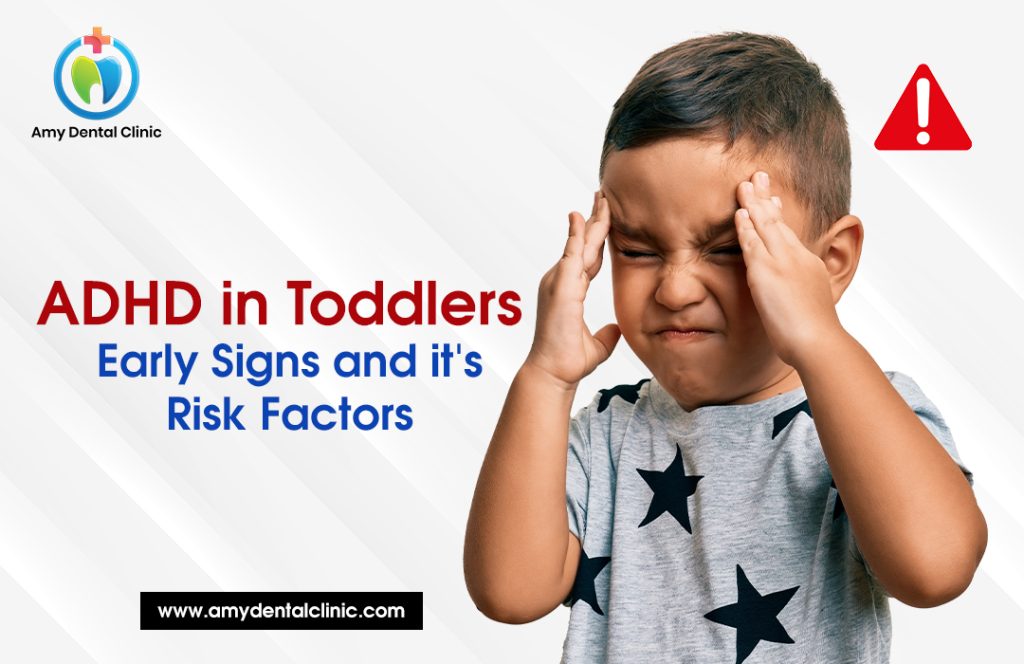In today’s world, getting treatment right with the correct medicine is very necessary. Attention deficit hyperactivity disorder (ADHD) is often associated with school-age children. It is possible to identify and treat ADHD symptoms in toddlers within the appropriate time frame.
Preschoolers with ADHD must be identified to receive early support and intervention. In this article, we’ll discuss the signs of ADHD in Toddlers, how parents may support their kids in preventing ADHD, and much more. Let’s first define ADHD.
What is ADHD?
ADHD is a neurodevelopmental condition characterized by repeated patterns of inattention. As well, kids who may face hyperactivity and impulsivity that interfere with daily functioning are also considered to have ADHD. These characteristics can occasionally be seen in all Children, but they are more common and severe in those with ADHD, which impacts their social, academic, and domestic functioning.
Common Symptoms of ADHD in Toddlers
Preschoolers often have strong energy levels and short attention spans, making it difficult to diagnose ADHD in Toddlers. On the other hand, ADHD may be indicated if these behaviors are noticeably more severe than those of peers of the same age.
The following are important signs to look out for ADHD in toddlers:
- Hyperactivity: Being hyperactive means constantly moving, even when it’s not appropriate. Inability to remain motionless during structured play, storytime, or mealtime. Excessive chatter or noise production without consideration for the social setting.
- Impulsivity: Behaving without considering the repercussions of one’s actions, such as running into the street. They struggle to wait for their turn in conversations or sports. Blazing out responses or constantly interrupting others.
- Inattention: The Inability to concentrate on a single task for longer than a few minutes is known as inattention. Losing interest in hobbies or toys regularly, having trouble completing activities, or following basic instructions.
ADHD Treatment for Toddlers
What should parents know about ADHD treatment? Preschoolers with ADHD are frequently best managed using a combination of strategies, which are explained below:
- Parent education programs: Initiatives such as Triple P (Positive Parenting Program) give parents the skills they need to help their kids.
- Medication: Although it is typically saved for older kids, most doctors prescribe medicine for ADHD in toddlers. If your kids are facing ADHD and a doctor has prescribed the medicine, then you can prefer this.
- Structured routines: Consistent daily routines provide a sense of security and reduce potential triggers for hyperactivity or impulsivity.
Risk Factors and Causes of ADHD in Kids
While the real cause of ADHD is still unknown. But it is believed that there are several factors thought to be involved:
- Brain development: Variations in the structure and function of neurotransmitters may be involved.
- Premature birth or low birth weight: ADHD is more likely to develop in people who were born prematurely or with low birth weight.
- Genetics: There may be a hereditary component to ADHD since it frequently runs in Families.
- Environmental factors: Exposure to pollutants, such as lead, during pregnancy and early childhood may increase the risk.
Conclusion
It is essential to identify and treat the symptoms of ADHD in preschoolers in order to prepare them for success in the future. When it comes to helping toddlers with ADHD manage their difficulties and develop their special abilities, early intervention can make all the difference. By remaining educated and receiving expert advice, parents may provide their children with the support they need to succeed.

